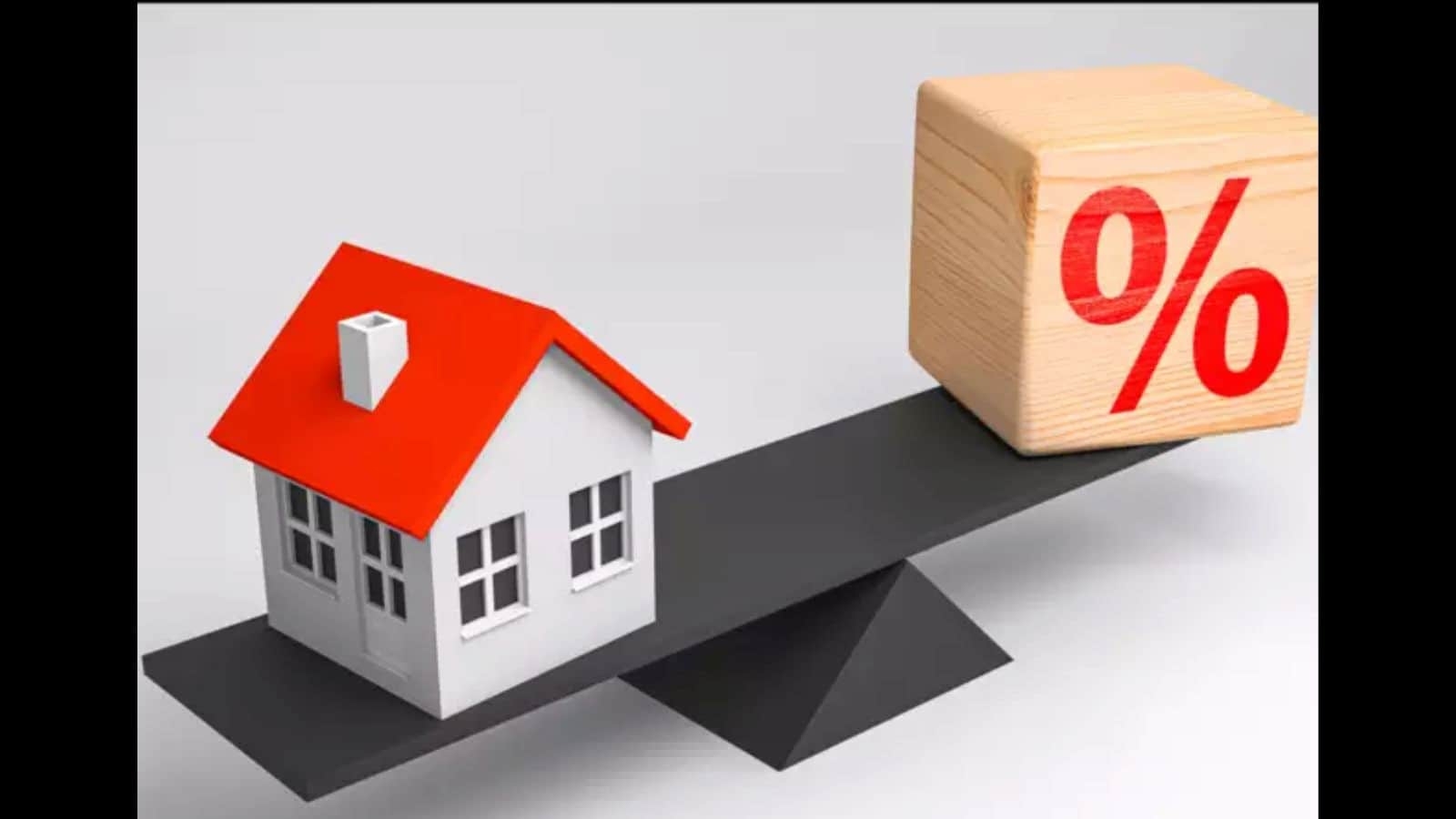What is 10-Year Mortgage Rates: There aren’t as many 10-year mortgages as there are other types, but they do have some benefits that make them stand out. Rates on 10-year mortgages are usually lower than rates on 30-year mortgages, even though your monthly payments will be very high.
It’s possible to save a lot of money over the long term with this type of loan, but the monthly payments are pretty high.
Discover how 10-year mortgages work and how to get the best rate for you with these helpful tips.
What is 10-Year Mortgage Rates?
Different types of mortgages work the same way. The only difference is that you’ll pay off your 10-year mortgage in 10 years instead of 15 or 30. If you can afford higher monthly payments, want to save a lot on interest, and don’t want to carry mortgage debt for decades, this might be the best way to buy a home.
Most people choose 30-year fixed-rate mortgages instead of 10-year mortgages, but the process of buying a home is the same whether you choose a 10-year or 30-year mortgage. You can expect to pay the same fees, such as origination and closing costs.
Current mortgage rates
| Product | Interest rate | APR |
|---|---|---|
| 30-year fixed-rate | 7.73% | 7.75% |
| 30-year fixed-rate FHA | 6.66% | 7.57% |
| 30-year fixed-rate VA | 6.74% | 6.85% |
| 30-year fixed-rate jumbo | 7.79% | 7.81% |
| 20-year fixed-rate | 7.60% | 7.63% |
| 15-year fixed-rate | 7.02% | 7.06% |
| 15-year fixed-rate jumbo | 7.09% | 7.11% |
| 5/1 ARM | 6.85% | 8.01% |
| 5/1 ARM jumbo | 6.76% | 7.91% |
| 7/1 ARM | 7.15% | 8.09% |
| 7/1 ARM jumbo | 7.03% | 7.94% |
| 10/1 ARM | 7.62% | 8.09% |
| 10-year fixed-rate | 7.14% | 7.16% |
Before you choose a home loan, you should talk to a few different lenders and do some research. You can get the best rate and fees for your situation if you talk to more than one lender. You have a better chance of getting a lower rate if you get information from more lenders.
Keep in mind that a 10-year fixed-rate mortgage is not the same as a 10-year adjustable-rate mortgage. You can get a fixed rate on a 10-year ARM for the first 10 years of your loan. Now, for the next 15 to 20 years, your rate will change either once or twice a year for the rest of the loan.
Mortgage rates for 10 years with a fixed rate
Mortgage rates have been steadily going up since the beginning of 2022, when they were at all-time lows of about 3% during the pandemic. As of the middle of November, the average rate for a 10-year fixed mortgage is just above 7%. The average rate for a 30-year fixed mortgage is just below 8%.
Inflation and the Federal Reserve’s efforts to lower it by raising interest rates are the main reasons why mortgage rates are so high right now. Mortgage rates aren’t expected to drop dramatically any time soon, according to experts. On the other hand, mortgage rates should slowly go down over the next year or so, as long as inflation stays low enough for the Fed to start lowering rates.
Bankrate gives us data that we use to keep an eye on daily changes in mortgage rates. Bankrate is owned by the same parent company as CNET. The average rates that lenders across the country offer are shown in the table above.
Student Loan Rebellion: A Quarter Consider Boycotting Repayment!
Pros of getting a 10-year loan
- You pay less in interest on a 10-year mortgage than on other types of mortgages because the bank is taking less risk by lending you money for a shorter time.
- You can save tens of thousands of dollars over the life of your loan by paying it off faster. This is because you’ll pay less interest overall.
- Because your monthly payments are higher, you’ll own your home faster than if you had a mortgage with a longer term.
Cons of a mortgage for 10 years
- High monthly payments: Because the loan term is shorter, monthly payments can be two to three times higher than on a 30-year mortgage. A lot of people might not be able to afford that.
- For a 10-year mortgage, the monthly payment is higher than for a loan that is spread out over a longer period of time. Because of this, lenders will probably ask you to show that you can afford the payment with a higher income.
- May put a cap on your prices: If a house is affordable with a 30-year mortgage, it might be too expensive to buy with a 10-year mortgage. The amount you can borrow is based on your debt-to-income ratio, or DTI. A 10-year loan will make your DTI higher because the monthly payments are higher. Some people may not be able to get a 10-year loan even if they have good credit and want to buy a home in a pricey area.
- Less money saved: If you spend a bigger chunk of your monthly income on your mortgage, you might not be able to pay off other debt and save as much. This can be dangerous in an emergency or if your financial situation changes.
Should you borrow money for 10 years?
If you want to pay as little interest as possible on your mortgage, a 10-year mortgage is a great choice. However, it’s not the best choice for everyone. A 10-year home loan is just out of reach for many people who want to buy a home.
If the following are true, a 10-year mortgage is the best option for you:
- You can easily make the bigger payments.
- You want to pay less in interest over the course of your loan.
- You want to get rid of your loan faster and save money quickly.
- You can use CNET’s mortgage calculator to get a good idea of how much your monthly payment will be for a 10-year loan.
How to get the best rate on a 10-year loan
It’s important to compare loan offers from different lenders, no matter what kind of mortgage you want. That way, you can see their rates and fees next to each other and negotiate the best interest rate for your needs.
Make sure your application is in great shape before you do that. You will have a better chance of getting the best rates if you have good credit and pay off your debts.
Making payments on time and not going over your credit limit are two things you can do to improve your credit.
How do you get a mortgage for 10 years?
For each type of mortgage, there are different requirements for who can get one. If you meet the following conditions, you’ll have a better chance of being approved:
- Income: Your monthly payments will be a lot higher for a 10-year mortgage because you pay it off much faster than a 30-year mortgage. Because of this, you’ll need a higher income to get the loan. The exact amount will depend on the price of the home and the size of the loan.
- Score on your credit report: To get a conventional 10-year fixed mortgage, your score must be at least 620. But each lender may set their own minimum credit score requirements that are higher.
- Down payment: Most experts say that you should put down 20%, but it’s not required. The least amount of money you need for a down payment is usually just 3%.
- Other things to think about: Make sure you have all of your financial papers together, like your tax returns and pay stubs. Lenders will look at all of your financial information to decide if they will give you a loan or not.




